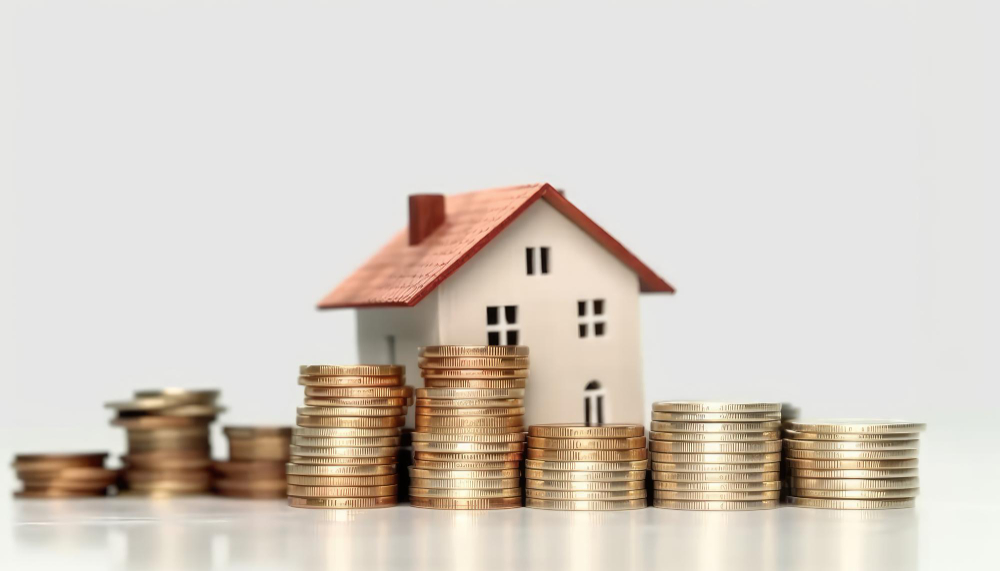Blog Guides Lending and mortgage
What is mortgage fraud? How to avoid it, at all costs?
Updated Wed, Jun 12, 2024 - 7 min read
Top blog articles
When buying a house, it’s crucial to be well-prepared to avoid stress and safeguard against financial and legal risks. Knowing what is mortgage fraud and how this serious offense can jeopardize your life is crucial.
Over the years, various industries, especially banking, finance, and housing, have witnessed unethical behavior and criminal activities. Mortgage fraud is a prime example. It offers opportunities for theft, deception, and shortcuts. Here, we’ll try to understand how such deception operates, the types of mortgage fraud, and how to avoid it smartly.
What is mortgage fraud?
Mortgage fraud occurs when certain individuals intentionally deceive the other party (the borrower or the lender/underwriters) during the home loan process. It’s not limited to predatory lending practices. Individuals or groups can commit fraud, whether they plan to live in the property or profit from it through rentals or flipping. The Federal Bureau of Investigation (FBI) defines it as any significant misstatement, misrepresentation, or omission related to the property or mortgage used to secure a loan. This fraud can involve borrowers or industry professionals and often involves large sums of money.
Why do some people commit mortgage fraud?

Both borrowers and industry professionals may engage in mortgage fraud for various reasons. Borrowers committing fraud for property often do so to keep their current home or secure a new one, believing they won’t qualify for a loan honestly. They may omit or lie about details such as income or property value. Industry professionals, on the other hand, commit fraud for profit by distorting clients’ financial information to boost their own earnings from the deal. This type of fraud can involve anyone in the loan process, including loan officers, real estate agents, appraisers, and more. Sometimes, these professionals collaborate to deceive lenders and borrowers, aiming to maximize profits and fees. These actions are typically driven by the desire for higher commissions or investment gains.
What are the types of mortgage fraud prevalent, today?
The following fraudulent practices undermine the integrity of the mortgage process. And, lead to legal and financial repercussions for all parties involved.
Fraud for profit
This kind of fraud isn’t about getting housing; it’s about abusing the mortgage system to take money or equity from lenders or homeowners. Sometimes, industry insiders such as bank officers, mortgage brokers, appraisers, and real estate agents may exploit their expertise or position to commit or enable fraud. Fortunately, the FBI gives high priority to cases of fraud for profit.
Fraud for property
Sometimes, borrowers deceive lenders about their financial situation to gain or keep ownership of a property. For instance, on a loan application, they could lie about their employment status, income, property value, or credit status. Or, persuade an appraiser to falsely boost the property’s value.
What are the most common types of mortgage fraud schemes?
There are several types of property fraud:
- Dishonest property flipping: Buying, renovating, and quickly selling property for profit can be legitimate, but it becomes fraudulent when properties are bought below market price and resold immediately with inflated values, often with the help of dishonest home appraisers.
- Asset rental: Borrowers may fraudulently use borrowed assets from their friends and family to appear more qualified for mortgages.
- Occupancy fraud: Occupancy fraud happens when a borrower claims they’ll live in a home (as their primary residence) to get better bank terms. But in reality, the property stays empty.
- Equity skimming: Investors use straw buyers (a person who buys a house on behalf of another person or group) to obtain mortgage loans with false information. And then rent out the property, without making mortgage payments, until foreclosure.
- Foreclosure scams: Scammers convince homeowners facing foreclosure to transfer their property to a third-party investor, promising to repurchase the home later. However, scammers don’t make payments, leading to foreclosure.
- False identity or identity theft: Scammers use stolen identities to obtain mortgages on properties they don’t own, using fake documents such as pay stubs, stolen social security numbers, or employment verification forms.
- Inflated home appraisals: Appraisers, sometimes in collusion with others, may undervalue or inflate property values to manipulate sale prices and maximize commissions.
How to protect yourself from fraud and scams?
The consequences of falling victim to fraud can be devastating, leading to financial loss, emotional distress, and damage to one’s reputation. Therefore, recognizing common scams, and adopting proactive measures to prevent fraud are essential for safeguarding oneself and maintaining financial security
Consider legal counsel
While not mandatory in all jurisdictions, hiring a real estate attorney can offer invaluable protection. These legal experts scrutinize all transactional documents, provide legal advice, and ensure compliance with laws and regulations. Though there’s a cost involved, the peace of mind and legal protection they offer make it a worthwhile investment in your home-buying journey.
Validate all professional references
Before collaborating with any real estate agents or loan officers, it’s prudent to verify their credentials and reputation. Seek out online reviews or seek recommendations from trusted sources to gauge their reliability and competence in guiding you through the mortgage process.
Conduct a thorough property title check
Performing a comprehensive title search on the property you intend to purchase is essential. This examination reveals vital information regarding ownership history and any outstanding debts or liens attached to the property. By uncovering potential financial liabilities, you safeguard yourself against unexpected expenses.
Carefully review the loan documentation
Before finalizing your mortgage agreement, carefully examine all loan documents. Ensure that all details, such as loan terms, interest rates, and associated fees, are accurately reflected. Seeking clarification from your lender or real estate attorney on any ambiguous points can mitigate misunderstandings later on.
Verify the property tax assessments
Validate the property’s tax assessments to ascertain its assessed value. Comparing this value with similar properties in the area and conducting a comprehensive home inspection aids in gauging the property’s true worth. Armed with this knowledge, you can negotiate a fair purchase price and avoid potential financial pitfalls.
Make transparent financial disclosures
Maintaining honesty regarding your financial situation is paramount when applying for a home mortgage. Accurate disclosure of income, assets, and any borrowed funds or gifts ensures transparency and prevents inadvertent involvement in mortgage fraud.
Partner only with reputable real estate professionals
Opt for real estate agents with a proven track record of integrity and professionalism. Avoid those who exert undue pressure or rush you into decisions. Careful vetting and selection of trustworthy professionals safeguard your interests and contribute to a smooth transaction.
FAQs

What happens if someone is caught engaging in mortgage fraud?
Mortgage fraud carries severe legal penalties, enforced by local, state, and federal laws. The consequences depend on the type of fraud committed, but both borrowers and mortgage professionals can face harsh penalties. Under federal and state laws, a conviction for mortgage fraud could lead to up to 30 years in federal prison and fines as high as $1 million. Individuals found guilty of mortgage fraud may not only face civil lawsuits but also damage their reputation and credit history.
How to report mortgage fraud?
If you suspect mortgage fraud, report it to your lender or financial institution immediately. You can also contact law enforcement agencies such as the FBI or the Consumer Financial Protection Bureau (CFPB) to file a report. If needed, you may also report to big organizations such as Fannie Mae and Freddie Mac. They will help you with steps to follow and hotlines to call.
How to avoid being scammed in the mortgage industry?
Protect yourself from mortgage fraud by thoroughly reviewing loan documents, verifying property information, working with reputable professionals, and staying vigilant for red flags such as pressure tactics or unsolicited offers.
Read more: What is a mortgage recast?









